AOTWP BLOG |
|
Ant Course 2023 in Papua New Guinea has officially started. After a few bumps in the road with travel, our instructors and participants have safely arrived to the Binatang Research Center. Day 1 consisted of multiple lectures to help set the stage for world ants. Course participants range in education levels from Doctorate to Undergraduate. The lectures hope to give all students enough knowledge to have a successful time in the course. Our morning started out with a presentation by Ant Course Instructor Phil Ward. Phil presented on ant phylogeny and the classification of ants. This was a baseline introduction to the world of ants, in hopes to set the stage for all students. Phil spent some time walking through the 3 major clades: Leptanillomorphs, Poneroid, and Formicoid. Students will be referring to subfamilies in these clades throughout the course. The second presentation of the day was done by Flavia Esteves on morphology. Students got the chance to learn about identification and parts of the ant. She discussed the diagnostic characters of ants which included, the metapleural gland, the elongate first antennal segment, and the abdominal segment. Flavia provided another presentation in the day that got into the specifics of identifying genera. Students got the opportunity to hear from Brian Fisher too. Brian discussed data collecting for our first day in the field tomorrow. He went over the importance of keeping record of data for specimens. Students were informed that good science contains transparent and raw data. Brian walked through how to label specimens and how to record that in their field book. Brian also did a second talk about Ponerinae in which he discussed biological diversity of the genera. Diversity ranges far as some genus living in pristine habitats, while others live in disturbed sites. A portion of the afternoon was used to demo field methods for tomorrow. Students got to learn from the instructors about these collection methods which included the malaise trap, both the Winkler method and Lloyd method for sifting leaf litter, and baiting. Students will get the chance to use these methods in the field. Our first seminar tonight was done by Philipp Höenle, who is currently staying at the BRC. Philipp introduced the ants in Papua New Guinea and their biogeography.
Tomorrow we will be heading to Baitabag for our first day in the field.
0 Comments
Leave a Reply. |
AuthorWrite something about yourself. No need to be fancy, just an overview. Archives
September 2023
Categories |
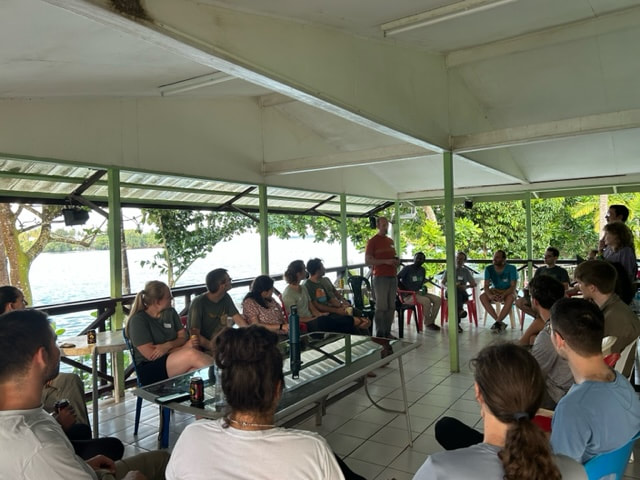
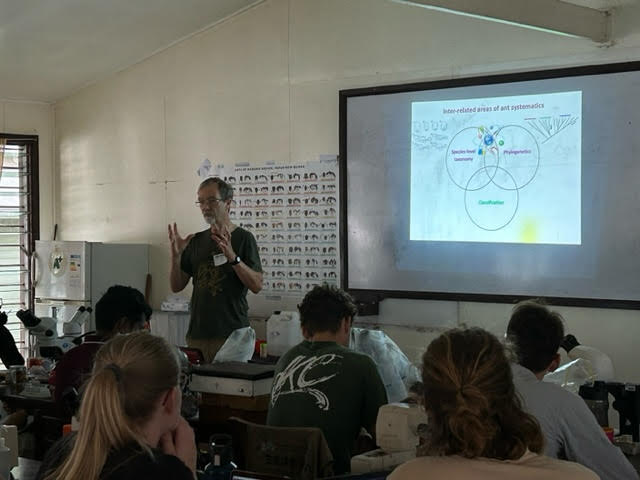
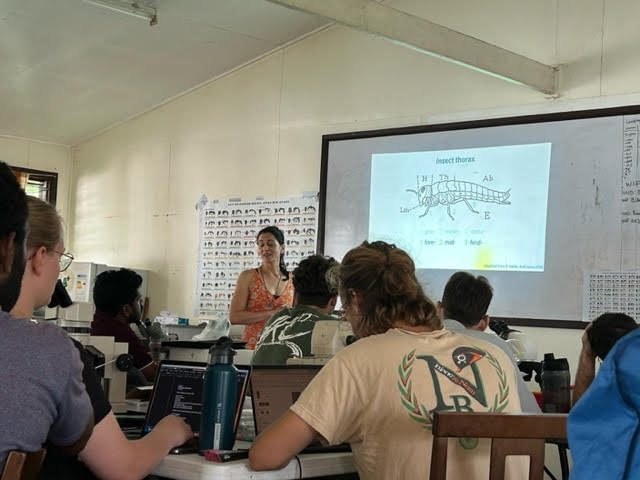
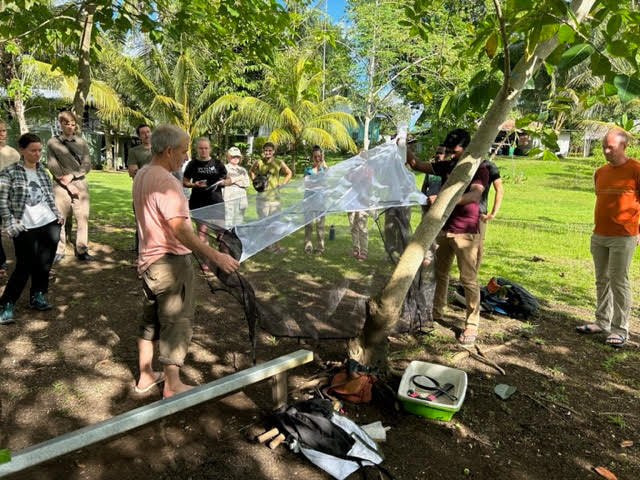
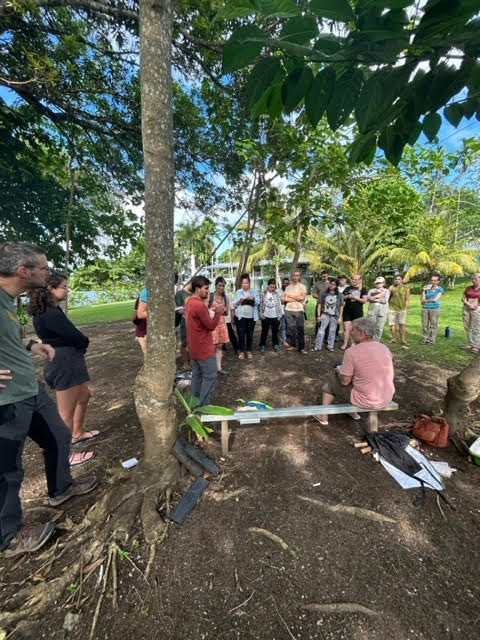
 RSS Feed
RSS Feed